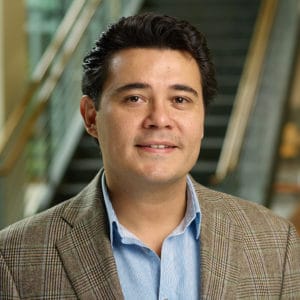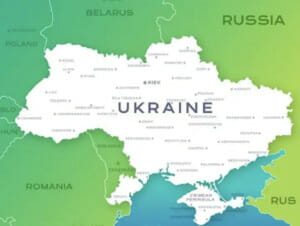Cheaters Never Prosper, and New Research Shows Their Behavior Can Be Predicted

The Latest News & Updates From the Division of Politics & Economics Community
Did you know that those who promise to cooperate but cheat have a tell-tale stress response and usually experience unhappiness even when they get away with it?
That’s what new research conducted in the laboratory of Professor of Economic Sciences Paul J. Zak demonstrates by measuring multiple brain responses while people discussed how they would share $530. The U.S. Air Force funded the project.
While nearly every participant promised to share the money, one-third reneged on their promises. Furthermore, the study showed that neurologic signals predicted who would cheat with 86% accuracy. The study was co-authored with CGU alumni Jorge A. Barraza (PhD, 2010), Xinbo Hu (MA, 2019), and Giti Zahedzadeh.
Fully 98% of study participants promised their partners they would share money, but 30% cheated. After pairs of study participants communicated face to face what they would do, decisions were made in private to give them a chance to consider cheating.
Like Eve’s apple, money is a strong source of temptation. The study showed that those who reneged on a promise to cooperate had elevated physiologic stress during pre-decision communication using two measures––adrenocorticotropin hormone measured in blood and electrical activity due to a response known as palmar sweating––compared to those who fulfilled their promises.
In addition, promise-breakers’ moods became negative after they cheated, while promise-keepers moods were stable.
The study is unique not only in its use of multiple measures of brain responses and its high predictive accuracy but for its “ecological validity”: The study was designed to replicate how people really negotiate. To capture this, Zak and colleagues studied working-age adults (ages 25-50) and gave them enough time to meet each other and make commitments about what they would do for meaningful monetary stakes.
- Read more about the study results published in the journal Frontiers in Behavioral Neuroscience: Individual and Social Behaviors.

Health & political power: Mary Toepelt Nicolai and George S. Blair Associate Professor Javier Rodríguez has kept up a busy research schedule collaborating with CGU colleagues and other scholars looking at the intersection—often collision—between policy-making power and its impact on public health, especially for children and infants.
Rodríguez, DPE colleague Melissa Rogers (who is the associate dean of the School of Social Science, Policy & Evaluation), and alumni Sandra Garcia (PhD, 2014) and Dong Wook-lee (PhD, 2016) are the recent recipients of a nearly $70,000 grant to investigate the geographic variations in Alzheimer’s disease and related dementias. The National Institute on Aging provides the grant.
In addition, Rodríguez is the co-author of several new and forthcoming pieces, including “Partisan Control of U.S. State Governments: Politics as a Social Determinant of Infant Health” in American Journal of Preventive Medicine; “The Political Realignment of Health: How Partisan Power Shaped Infant Health in the U.S., 1915–2017” in Journal of Health Politics, Policy and Law; “Highly vulnerable communities and the Affordable Care Act: Health insurance coverage effects, 2010–2018” in Social Science & Medicine; and “Race and class patterns of income inequality during post-recession periods” in Social Science Quarterly.

The Russian Invasion of Ukraine: Ted Gover (PhD, 2016) explains in a recent commentary piece in The Times of Israel why Ukraine matters to the U.S. Gover, who serves as an associate clinical professor and the director of the Tribal Administration Program at CGU, offers an unsettling view of what might happen in the near future.
That view, though, isn’t about the war’s outcome: Gover expresses concern about the attention span of the American public, which is very strong right now. But that could change, Gover argues.
“Although Americans’ support for Ukraine during this early stage of the crisis is strong, it is likely to fade over time,” he explains. “Mr. Biden needs to educate the American people on the ramifications of Putin’s invasion of Ukraine, how it affects the U.S., and why a rebooting of America’s security policy to counter autocratic aggression is urgently needed.”